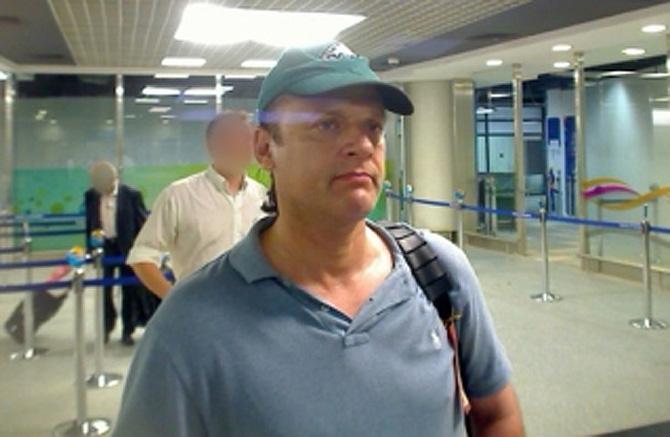 The deposition was meant to secure more information on the 26/11 terror attacks that would make India's case against Pakistan stronger.
The deposition was meant to secure more information on the 26/11 terror attacks that would make India's case against Pakistan stronger.
Instead, the internal conflicts within India's security establishment stood exposed, says N Suresh.
I fail to understand the purpose of David Coleman Headley's deposition, which wound up recently.
It was based on conditions set by the Americans, which benefitted Headley, one of the accused in the 26/11 attacks. His location was undisclosed and most importantly, what was the final goal?
Was it to prove Pakistan's role in sponsoring the deadly attacks and sending terrorists to India?
Was it so that then Headley's confessions, which are well known, are reiterated?
Or was it to rake up issues unconnected with the attacks and divert attention from the failure of Indian intelligence and security to prevent the attacks?
Here was a dreaded terrorist who came to India multiple times from Pakistan. He went around conducting recces of several target locations, not once, but several times. He was never suspected nor questioned by Indian immigration and intelligence agencies about why he was here.
Never once was his past checked. Headley had a criminal record in the United States and had been arrested twice.
About 80 per cent of the answers that Headley gave during his deposition were hearsay and mostly gossip that he heard in Pakistan's terror training camps. But since he is a white man he has become an approver even though he is a dreaded terrorist.
Headley claims to have to have conducted more than one recce of the Bhabha Atomic Research complex in Mumbai. Indians cannot walk around BARC without being picked up for questioning. Here is a man who went in there twice and claims to have video shot from the inside.
Disconcerting as it may sound, India's security comes across as easy to penetrate and easily compromised.
The scary truth is there is a likelihood of a 26/11 attack being repeated as a result of this compromised security. Headley's deposition revealed to the world how defunct our security checks are.
On the six days Headley was questioned by Special Public Prosecutor Ujjwal Nikam, only his claims on his recces, discussions on the attacks on Mumbai and his proximity to Lashkar-e-Tayiba and Al Qaeda were important. These were interspersed with Headley's stories.
Nikam asked Headley specifically if he was aware or knew of a Lashkar women's cell. He denied it. At no point did he claim to know Ishrat Jahan, the alleged terrorist killed in an encounter in Gujarat, was working for Lashkar. He had 'heard' that a female operative was slain, but did not reveal Ishrat's name.
Nikam then asked Headley to select one name from three, like they do on television quiz shows. He replied that he thought it to be the second option. Whereupon Nikam squealed excitedly "Yes, Ishrat, yes." Headley then outright denied being aware or having heard of any female suicide bomber.
At the end of that day's proceedings, Nikam addressed the media to claim that Headley had named Ishrat as a suicide bomber.
The deposition was meant to secure more information and revelations on the 26/11 terror attacks that would make India's case against Pakistan stronger. Instead, the internal conflicts within India's security establishment stood exposed.










 © 2025
© 2025